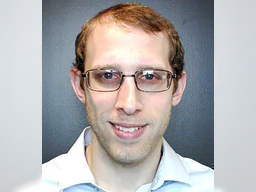Colloquium: Dr. Colin Trout, JHU Applied Physics Laboratory
In-Person PHYS 401
Location
Physics : 401
Date & Time
September 28, 2022, 3:30 pm – 4:30 pm
Description
TITLE: Provably Optimal Control for Multiplicative Amplitude Control Noise
ABSTRACT: The path to demonstrations of quantum algorithms that impact the broader scientific community involves the construction of scalable devices and methods that are not inundated by the native noise of the hardware. To achieve that task, protocols must be developed to correct noisy components and sufficiently target the specific noisy aspects of a given quantum hardware. In this talk, we present a method that utilizes information from the characterization of noisy environments to engineer noise-tailored quantum gates. In particular, we demonstrate an approach for quantum control that optimally mitigates the influence of temporally-correlated control noise. Our approach takes the characterization of the control noise as an input and utilizes model-based descriptions of the noisy dynamics which allows for the convex search for control solutions as a gate-based circuit optimization. We present our model-based approach to constructing provably optimal control sequences as well as provide demonstrations of its utility. Finally, we show that we can obtain near-optimal solutions in the presence of time-correlated dephasing as long as the control noise is strong relative to the dephasing noise during the application of the gate.
ABSTRACT: The path to demonstrations of quantum algorithms that impact the broader scientific community involves the construction of scalable devices and methods that are not inundated by the native noise of the hardware. To achieve that task, protocols must be developed to correct noisy components and sufficiently target the specific noisy aspects of a given quantum hardware. In this talk, we present a method that utilizes information from the characterization of noisy environments to engineer noise-tailored quantum gates. In particular, we demonstrate an approach for quantum control that optimally mitigates the influence of temporally-correlated control noise. Our approach takes the characterization of the control noise as an input and utilizes model-based descriptions of the noisy dynamics which allows for the convex search for control solutions as a gate-based circuit optimization. We present our model-based approach to constructing provably optimal control sequences as well as provide demonstrations of its utility. Finally, we show that we can obtain near-optimal solutions in the presence of time-correlated dephasing as long as the control noise is strong relative to the dephasing noise during the application of the gate.
